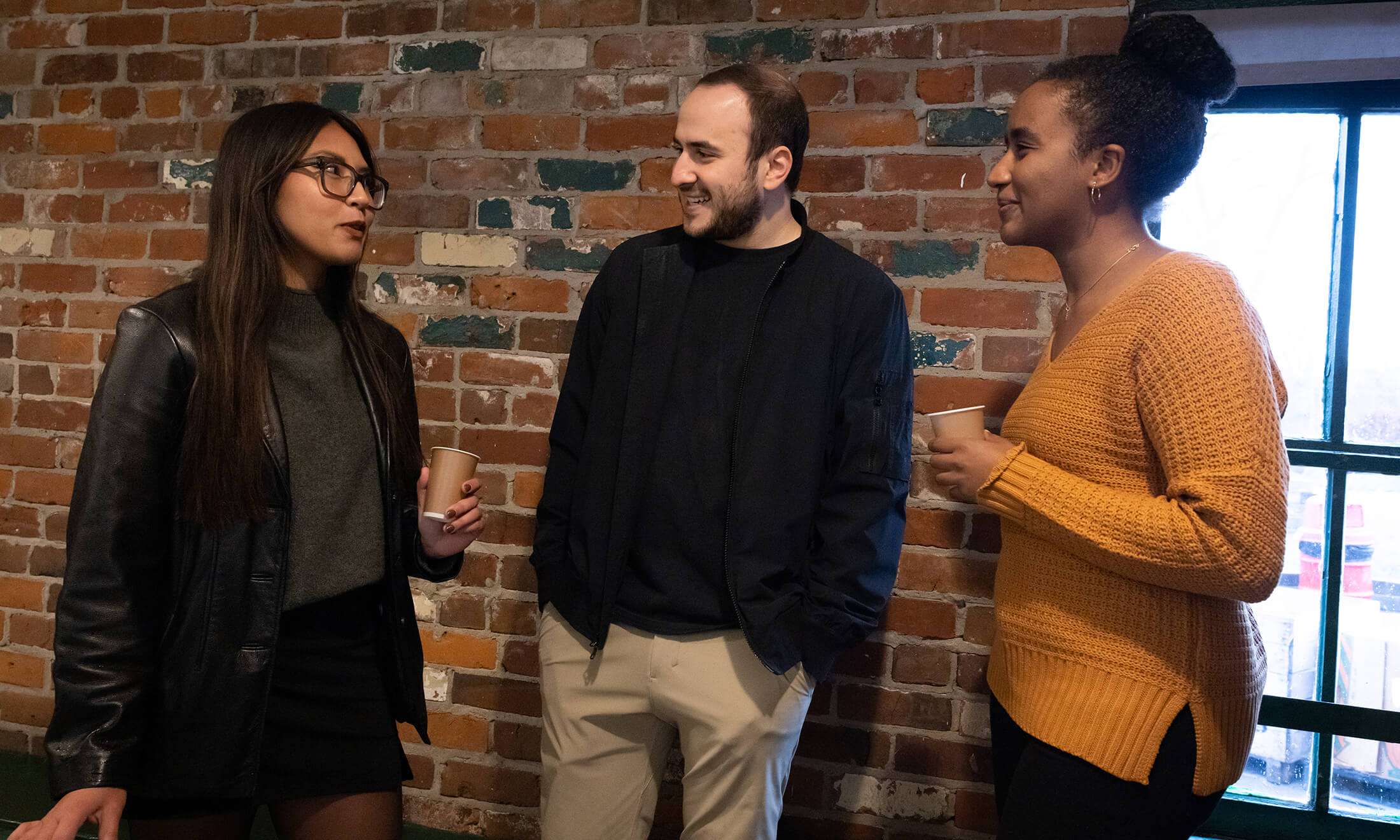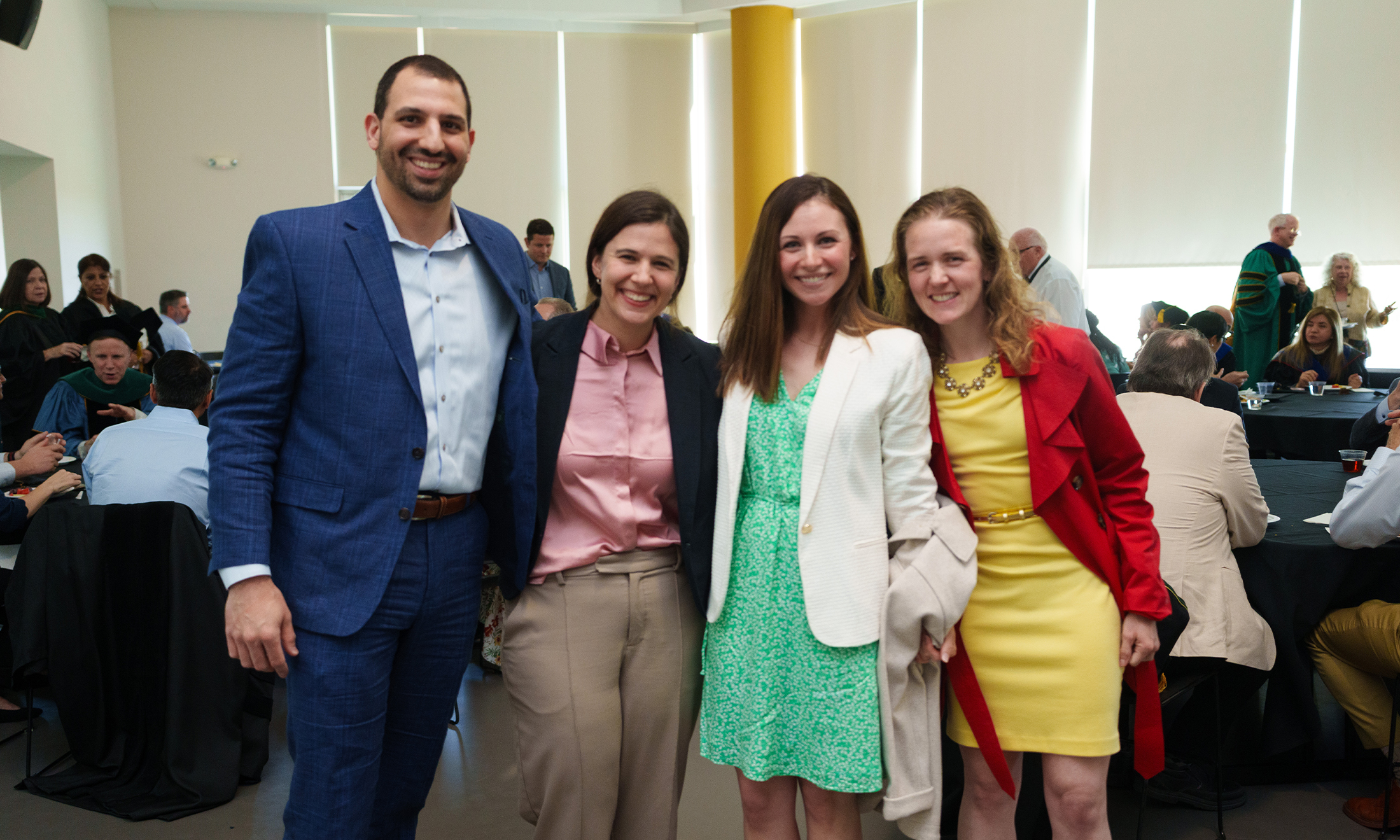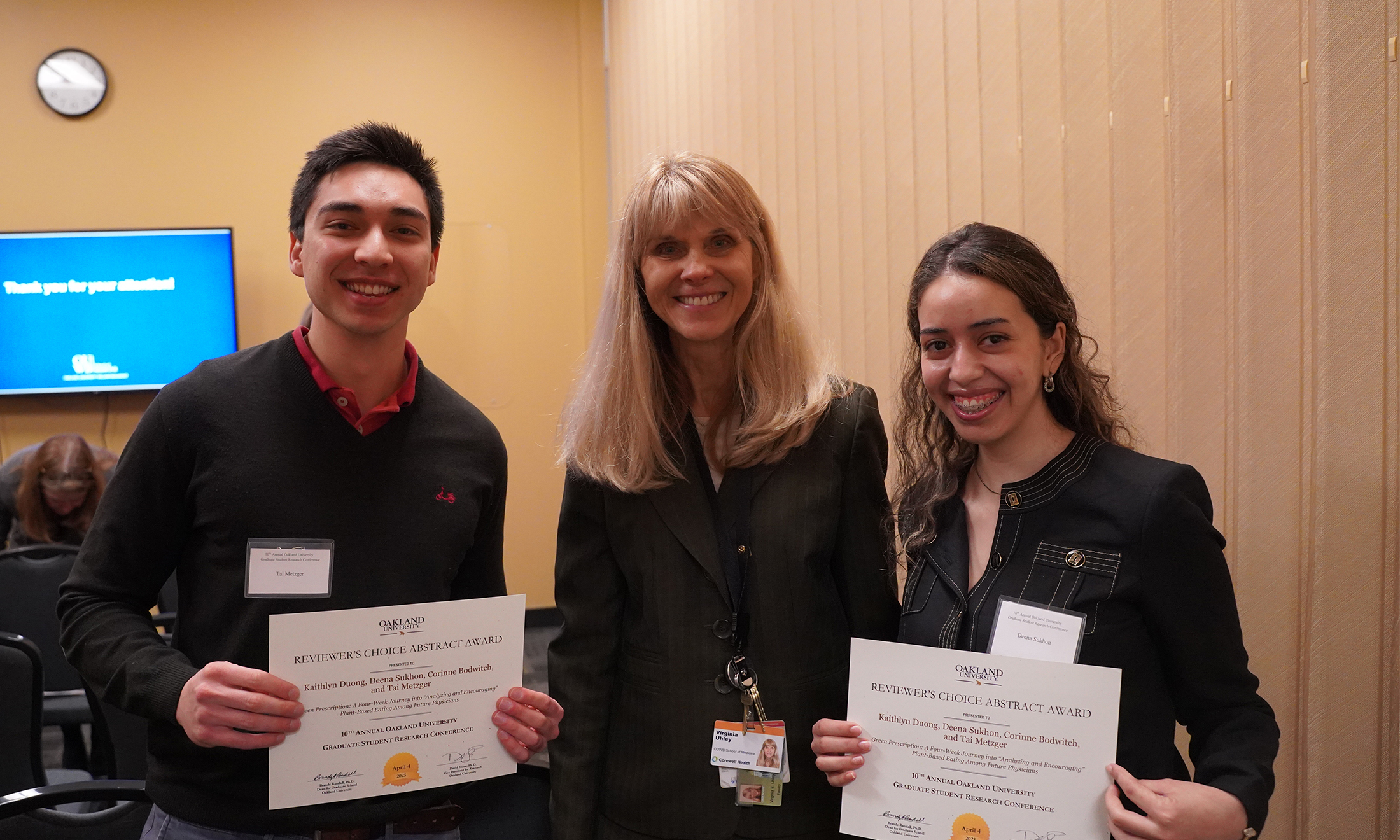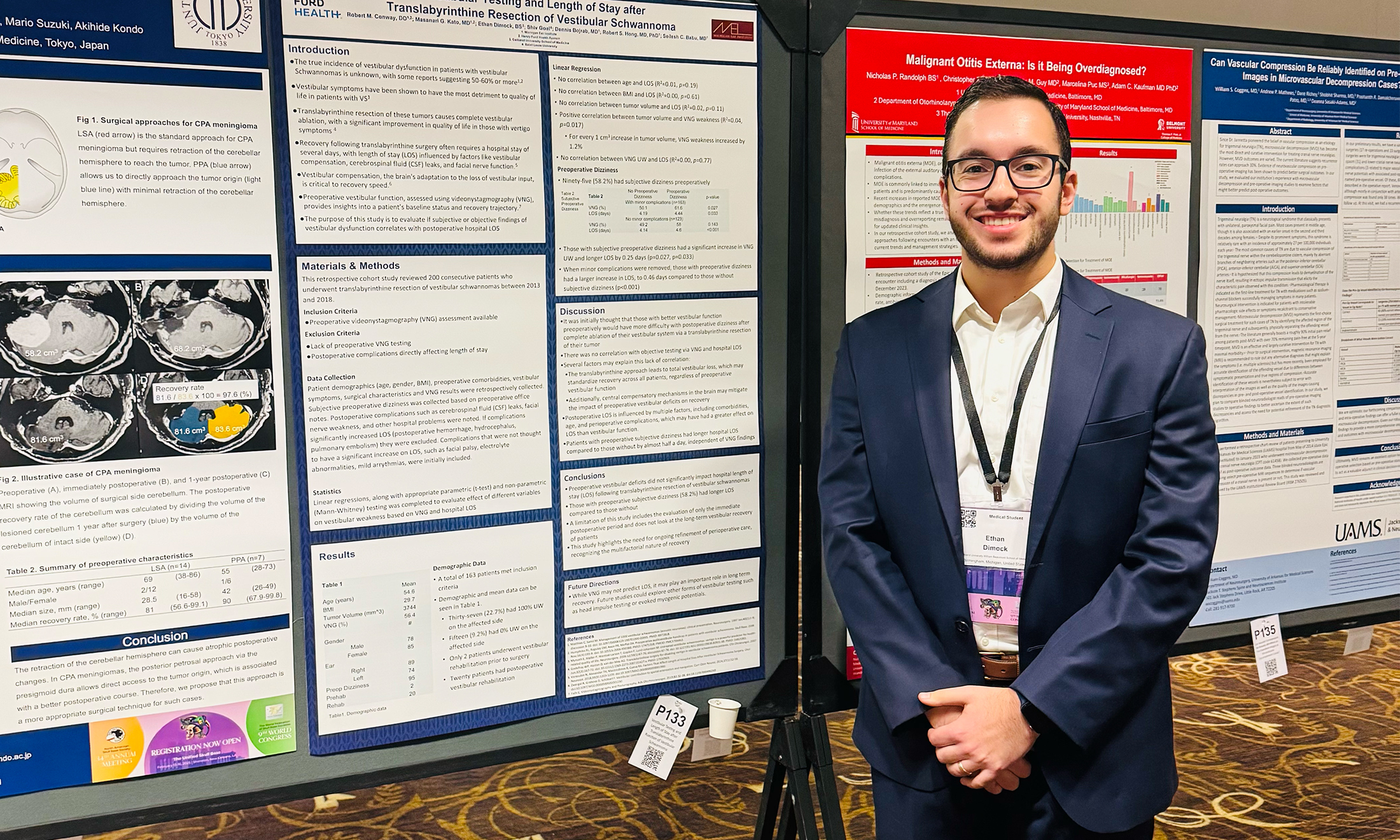Building a ‘family’ through mentorship
Big Sib/Little Sib program forms lasting bonds of support between OUWB students
The first year of medical school can be overwhelming. But OUWB's Big Sib/Little Sib program helps ease the acclimation process by establishing lasting mentorships between first-year medical students (M1s) and second-year medical students (M2s).
Participation in Big Sib/Little Sib is voluntary, but the vast majority of M1s apply for the program and are then paired with an M2 who serves as their "Big" for their entire time at OUWB.
"It's really nice talking to someone who's been where you are, because sometimes you can lose sight of the big picture when you have so many things going on," says M1 Rima Stepanian.
"We can just text our Bigs if we're struggling with something and they'll say, 'Yeah, it's tough, but it'll be over in a week or two weeks.'"
Big Sib/Little Sib was established in 2012, as soon as OUWB's second class began their studies. Berkley Browne, Ph.D., OUWB's interim associate dean for Student Affairs, says the program is part of OUWB's effort "to create a med school culture that is focused on collaboration and community, as opposed to competition."
"Especially for our new students who don't have strong ties or many ties to Michigan, sometimes their Big Sib is the only family or community that they have at the med school in the first couple of weeks," she says. "This program has been really critical (to build) that culture of community among the students."
That's certainly been the case for Stepanian. She and her Big, Davit Meliksetyan, are both of Armenian heritage. Stepanian says she's deeply appreciated being able to text Meliksetyan in Armenian and otherwise bond over their shared cultural background. Thoughtful Big-Little pairings like theirs are the result of a thorough application review process conducted by members of OUWB's Medical Student Government (MSG). This year, MSG members Revelle Gappy, Ali Rida, Faris Alkhouri, Yasin Sahin, and Kate Romero reviewed a total of 227 program applications, where prospective Bigs and Littles list their hobbies, background, med school specialties, and what they hope to get out of their mentor-mentee relationship.
As chair of MSG's social committee, Gappy was lead coordinator for Big Sib/Little Sib this year. Now an M2, Gappy says her Big has been available to answer "every annoying question that I have at a moment's notice," but has also become a dear friend to her. That positive experience inspired her to try and make great matches for other Bigs and Littles in her current role with MSG.
"Medicine overall is a team sport," Gappy says. "We all want to better the next generation, to advance the people in our field, and to help each other out."
Sahin's past positive experiences with mentorship also inspired him to work on Big Sib/Little Sib. He appreciated the thoughtful support he received at OUWB from his Big, who would check in with Sahin regularly even if he hadn't reached out for support. Sahin now has his own Little, with whom he's enjoyed bonding over their mutual love of live music in addition to the shared experience of med school.
"You pretty much get what you put into it," Sahin says. "If you want friendship, and that's the way it works out, that's great. If you want a lot of advice, you can text your Big every day. If you want some advice in the beginning and then you never need advice again, your Big will probably still check up on you every once in a while, but it's not forced."
Although OUWB's Student Affairs team managed Big Sib/Little Sib in its early days, Browne says MSG has "taken ownership" of the program with Student Affairs’ continued support as OUWB and its student community have grown. She says the student-driven nature of the program has been "really important" in getting more students engaged, as well as building a lasting community of Bigs and Littles.
"Every Big Sib and Little Sib is an individual person connecting with each other, but they're also part of a larger network of mentors and mentees," Browne says. "There's an attachment there, kind of a family lineage at this point, where we now have alumni, some of whom have completed residency and some of whom are now on the faculty of OUWB, who are able to connect with current students as part of their Big/Little Sib family line so-to-speak."
Although she's only halfway through her first year at OUWB, Stepanian says she's already "really excited" about joining that family by becoming a Big herself next year. Meliksetyan is eager to mentor Stepanian through that process, and to cheer her on through the remainder of her OUWB career.
"This is what med school should be all about: mentorship and showing direction to somebody who is lost and overwhelmed with all these things that are going on," he says. "It's so important to have a mentor to direct the students and help them not panic. It would have been so much harder if I didn't have anybody to show me direction."
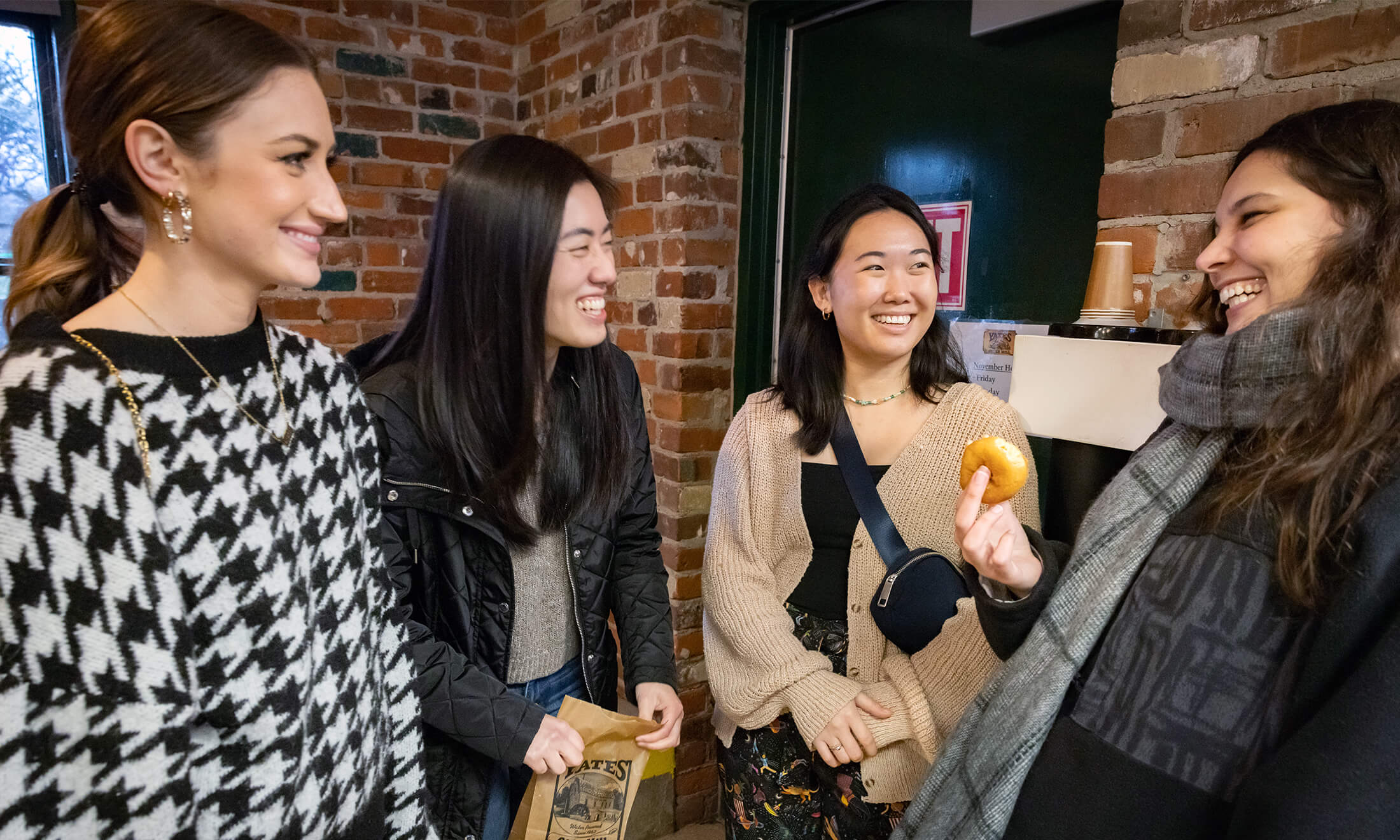
 December 21, 2021
December 21, 2021
 By Patrick Dunn
By Patrick Dunn